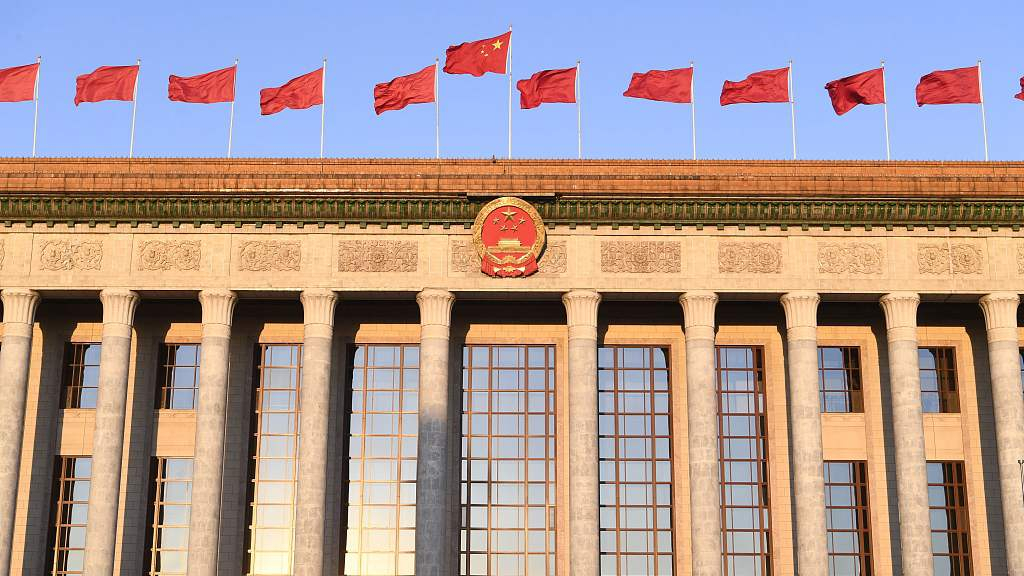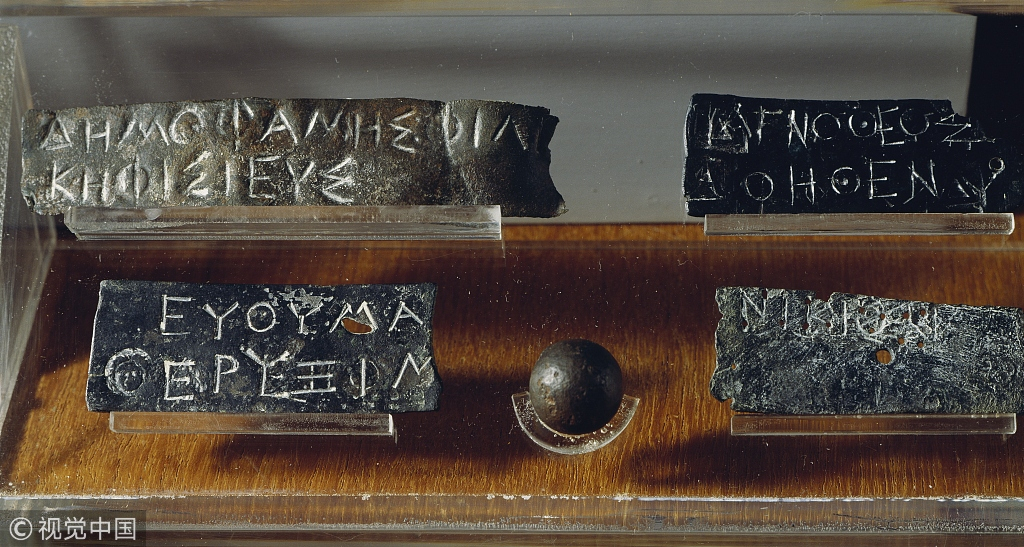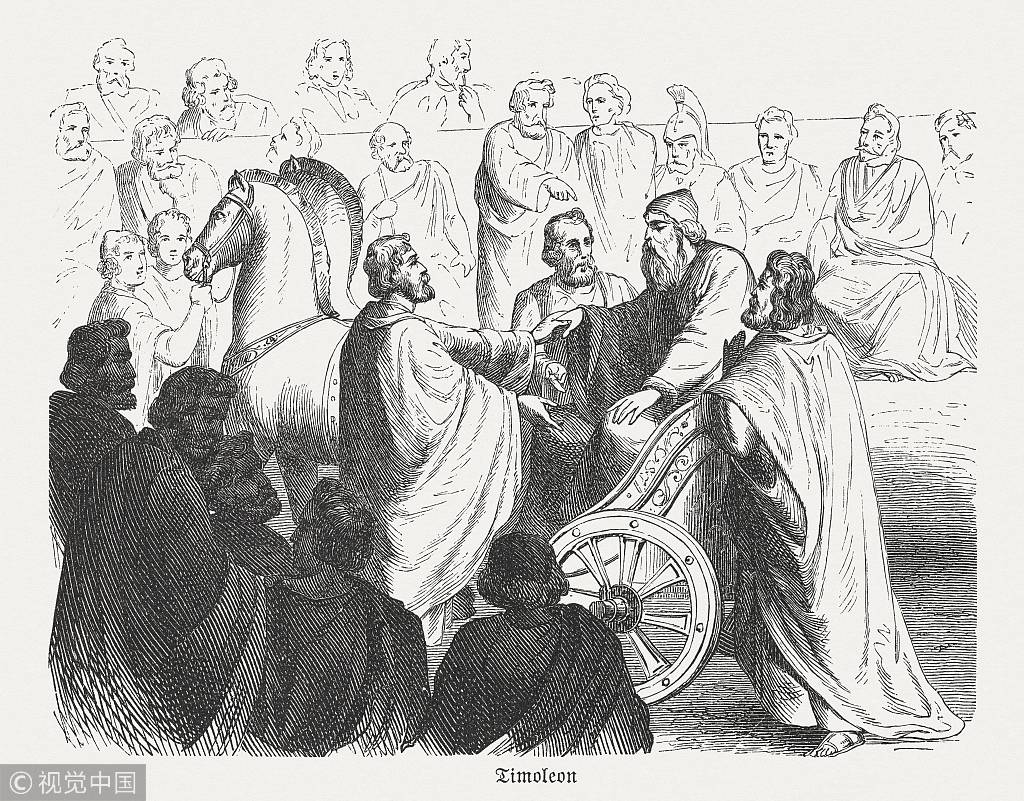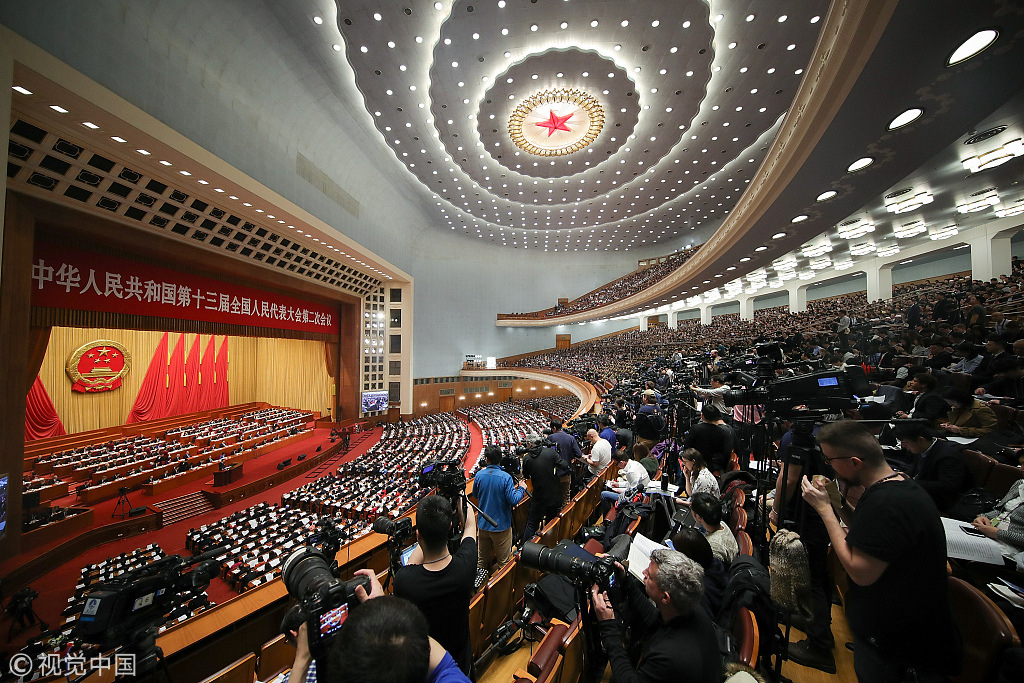
Opinion
22:24, 25-Mar-2019
Modern Chinese governance is remarkably similar to ancient Athens
Adam Garrie

Editor's Note: Adam Garrie is director of the UK-based global policy and analysis think tank Eurasia Future and co-host of a talk show "The History Boys." The article reflects the author's opinion, and not necessarily the views of CGTN.
What does the world's most populous country of the 21st century have in common with the city-state of Athens of ancient times? The answer lies in the type of governance shared between the two.
Ancient Athenian governance was unique from many contemporary political systems insofar as it eschewed both the concept of adversarial parliamentary governance and more convoluted presidential systems with overly powerful executives.

Ballot papers in ancient Athens. /VCG Photo
Ballot papers in ancient Athens. /VCG Photo
Instead, Athens relied on the principle of universal participation of the people in shaping their own political, economic and cultural development.
However, even in a small city-state like Athens, this needed to be balanced out by executive and oversight bodies that could dedicate themselves to the work of governing and specific problem-solving. As such, the Athenian government was built from the bottom up in the following way.
The Ecclesia (aka Assembly) was comprised of all adult male citizens of Athens and served as the city-state's main legislature.
The Boule (aka the Council) was comprised of 500 members of the Ecclesia. The Boule served as the government of Athens that implemented the specific tasks derived from the laws made by the Ecclesia.
Within the ranks of the Boule was the Prytaneis (aka standing committee), which served as the executive within the Boule.
After this came the Archons who shared duties as executive heads of state.

Timoleon during the People's Assembly. /VCG Photo
Timoleon during the People's Assembly. /VCG Photo
Finally, there existed the Areopagus which served as a council of elders that would oversee and scrutinize the lawmaking of both the legislature and executives.
The People's Republic of China is a vastly larger state than was ancient Athens, but there are many similarities between the two in terms of governance.
Although an Ecclesia comprised of every Chinese citizen would be logistically impossible to organize due to China's size, the annual Two Sessions serves as a modern parallel to meetings of the ancient Ecclesia.
The Two Sessions is the annual plenary meeting of the Chinese People's Political Consultative Conference (CPPCC) and the National People's Congress (NPC).
Like the Ecclesia, the CPPCC is comprised of delegates from multiple political parties, as well as those who have achieved excellence in the fields of science, technology, business, medicine, philosophy, art, sport, trade unionism, minority representation, theology and representation of the peasantry.
As such, the CPPCC serves as a body that is representative of the composition of the Chinese people as a whole.
The other body that meets as part of the Two Sessions is the NPC. This body serves as the modern equivalent of the Boule insofar as the body looks to put the people's will into motion through specific legal action steps.
The NPC Standing Committee along with the State Council serves as the contemporary analog of the ancient Athenian Prytaneis, while the president and vice president of China fulfill a role not dissimilar from that of ancient Athenian Archons.

The Great Hall of the People as Chinese Premier Li Keqiang delivers a speech in the opening of the second session of the 13th NPC in Beijing, China, March 5, 2019. /VCG Photo
The Great Hall of the People as Chinese Premier Li Keqiang delivers a speech in the opening of the second session of the 13th NPC in Beijing, China, March 5, 2019. /VCG Photo
Finally, the functions of the high classical Areopagus are similar to the role of the Supreme People's Court.
Additionally, just as Athenian strategoi served as the main protectors of the people, today, the leadership of the People's Liberation Army fulfills this role in China.
As ancient Athens is often described as an early example of a pure democracy, it is helpful to remember that when contrasted with parliamentary and congressional/presidential systems of the late modern era, ancient Athens was, in fact, more similar to the political institutions of contemporary China.
This is the case due to the fact that in China, there is a great emphasis placed on government that is shaped both by political leadership and by the direct political input of those from important sectors of society that are otherwise not associated with executive functions of professional political leadership.
In the same way that a skilled tradesman or mathematician had his voice heard in the ancient Ecclesia, today such voices from both men and women help to shape China's future from their esteemed positions within the CPPCC.
Furthermore, just as the various executive and supervisory bodies in ancient Athens were an outgrowth of the will of the people as represented most specifically by the Ecclesia, today's modern Chinese institutions are based on fulfilling, implementing and supervising the will of the people in a manner that is harmonious rather than adversarial, competitive or elitist.
As many young people throughout the world are taught that ancient Athens was the first full democracy (in spite of the presence of a slave class that is non-existent in China), it would help for such students of political history to note the similarities between China's political system and that of ancient Athens.
(If you want to contribute and have specific expertise, please contact us at opinions@cgtn.com.)

SITEMAP
Copyright © 2018 CGTN. Beijing ICP prepared NO.16065310-3
Copyright © 2018 CGTN. Beijing ICP prepared NO.16065310-3